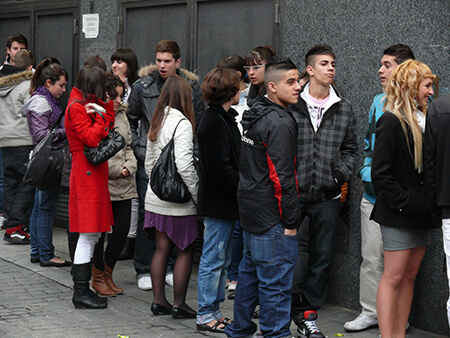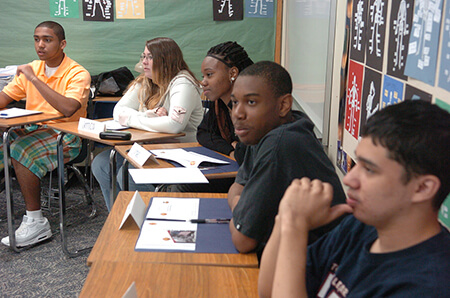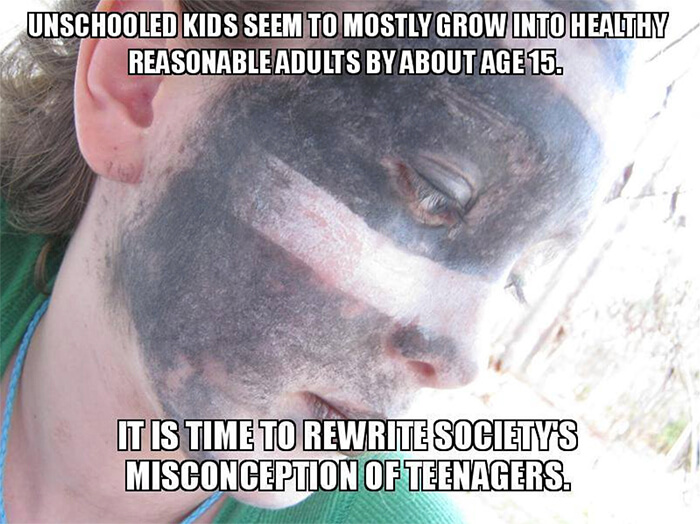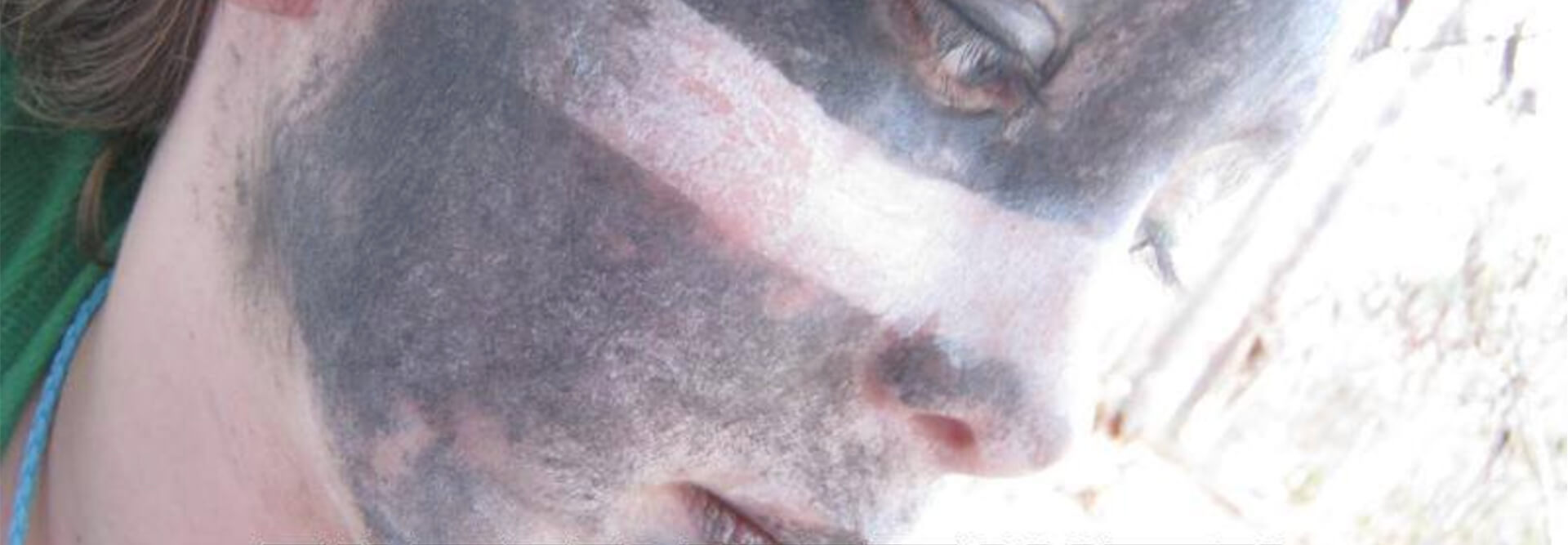Your phone rings in the middle of the night. The police are on the line. Your teenager is in trouble, possibly because their broken prefrontal cortex has led them to make a poor choice. While it turns out that, this time, your teenager is okay, the consequences of poor teen judgment can be dire and have changed countless lives and families. As you pause to give thanks that your teen is safe right now, consider what happens to kids in our culture when we deny their autonomy.
Are you one of the approximately four human beings who enjoyed high school in the United States? Or do you remember what it felt like to be told where to go, what to do, how to think, and who to be? Theologian and Associate Dean at Shimer College, Adam Kotsko says: “We ask 18-year-olds to make huge decisions about their career and financial future, when a month ago they had to ask to go to the bathroom.” The truth is, we ask teenagers to make adult decisions about their futures at the same time we’re holding them captive in school and controlling most of their daily choices.

School culture directs teenagers constantly. We were so profoundly controlled as teenagers, most of us don’t allow ourselves to consciously look at the truth of teen lives now or how controlling we are with our own kids.
Unschooling culture upends that control. Autonomy and self-direction offer such a deep well of education for kids that by the time they are teenagers, most are often as reliable and reasonable as adults. This, admittedly, is a rather low bar, but unschoolers tend to become adults sooner than schooled kids. While don’t have studies to back that up, we do have empirical evidence. Evidence that traditional pedagogy is a stone drag, and, from the unschooling community, that self-direction opens joy and reason with such a light touch.
Yet, for something so light, unschooling seems to hurt people’s feelings when they first hear about it. Self-Directed Education asks us to consider an idea way outside of academic approval or standard curriculum. It’s a scandal, it breaks all the rules, it forces us to reconsider not only the past but also choices we’re making for children now. Unschooling illuminates a cultural blind spot — that we hurt our children as we were hurt. So our culture is in a mad scramble of denial. Okay, hurt the children, hurt our society, but for God’s sake, don’t hurt our feelings. Wait, what?
Difficult feelings and cultural confusion are bad enough. But controlling teenagers limits their opportunities to learn, rather than encouraging their growth. Love makes humans smarter at every stage of life. The closer you hold your babies — the longer you baby them, love them, stay connected to them, nurture, cradle, nurse, and indulge their free curiosity — the faster, smarter, and healthier they grow. It is possible that the ultimate message of self direction, of unschooling, will be love. And if love makes humans smarter, our conception of how to educate teenagers is cattywampus, generations behind cool, an epoch behind dope.
Love is rad. But we’re quite a ways off from thoroughly embracing such a bold idea about love and intelligence, much less simply embracing our children and seeing them flourish. Right now institutional pedagogy seems to be getting mired in the study of neurology, not psychology. But unschooling would not persist if we didn’t see self-direction working so well. Especially compared to the experiences of kids who have been institutionalized in schools their whole lives.
Science and academia are working to understand the disconnected neurology of teenagers. There are tons of scans and studies telling us that American teenagers aren’t fully inhabiting their prefrontal cortices. And what a relief! This news is so easy to hear. It takes all the pressure off our schools, our parenting, and our culture. Schooled teenagers aren’t justifiably angry and given to the kind of impulsivity and craving for freedom we might expect of released prisoners. Schooled teenagers are sub-brained pre-adults. It’s nature, not nurture. Phew! Just look at the scans...

It is problematic for our socially constructed concept of teenagers that nearly all those scans are done on thoroughly schooled brains. Any extrapolations from these scans must be attributed to the brains of schooled humans, rather than all humans. Neurological research (and all pedagogical research) is going to have to start controlling for schooling if they want to make suppositions about humans in general. Unschooled teens reside in a different social culture from schooled teens — a culture with a different set of expectations and results. It’s likely their neurology reflects their education. Education is all about changing minds, is it not?
Consider a 2016 study from Brown University, “Infants Use Prefrontal Cortex in Learning,” published in the Journal of Neuroscience. This study has shown that infants make consistent use of their prefrontal cortex. If infants are employing the same neurological tools as adults in learning, it may be that scans of schooled teenagers have measured the extent of brain damage inflicted on teenagers in our culture, probably in large part due to 13 years of compulsory schooling:
“The findings suggest that early neurodevelopment should be viewed differently than before. Rather than regarding young brains as immature and less functional, a better perspective may be to regard them as constantly adapting to meet the key challenges they face. When healthy, they are as sophisticated as they need to be.”
While contemplating stereotypical high school teenagers and their seeming inability to self-direct, Rachel Gathercole, author of The Well-Adjusted Child: The Social Benefits of Homeschooling, points out that kids who are never raised apart from their own innate autonomy value their lives and their judgment more than kids who are systematically and specifically denied autonomy. This only makes sense.
If your body is the vessel transporting your autonomy — your experience of freedom, inquiry, creativity, work, and love, including sleeping, eating, and studying when you want (or not) — would you be likely to engage in self-harming, impulsive, or reckless action with yourself or in your relationships? Wouldn’t you be much more likely hold yourself, inside and out, in reasonable esteem and proceed with a human level of concern and care?
This is the trend unschooling parents have noticed in their children. If homeschooling didn’t foster a difference in kids, what would be the motivation to continue? It is notable that as a culture, we really don’t talk about high-schooled teens as “thriving.” Unschoolers tend to thrive and thriving is a human capacity.

To say that unschooled teens are often as reliably capable of self-direction as functional adults does not mean they should be cast to the streets to fend for themselves. Nor does it imply any kind of robotically perfect behavior or standardized uniform achievement. Which, of course, is an inhuman standard. But unschoolers tend to integrate into college and business — their adult lives — very successfully. And while institutional standards of success are increasingly seen, from a self-directed point of view, as a hollow goal.
Parents are often relieved to learn that it is considered a normal option in the context of homeschooling culture to start college at about age sixteen. Successfully accomplishing a standard western cultural goal, two years or more ahead of schooled kids, who increasingly choose a gap year — presumably to recover themselves (perhaps healing their neurological gap) before they begin higher education.
It might be that our implicit cultural goal of independence — reinforced in our society from the push to get kids in daycare and preschool, through 13 more years of elementary inculcation — initiates a fracture beginning in the prefrontal cortex and moving to our hearts.
Unschooled family life tends to emphasize connection, love, shelter, and freedom over standardized institutional goals. There is no time of life where humans are better off disconnected, less loved, or without shelter. Brain scans suggest schooled teenagers are neurologically fractured, possibly by separation from their families at a young age and by their educations, so that they really can’t self-direct. But we see unschooled teenagers self-directing successfully. From the paradigm of connection, love, shelter, and freedom as a form of education arises a bittersweet paradox: we hold our kids closer longer and discover them gone to adulthood sooner.
If you enjoyed this article and feel called to give back to ASDE, here are ways you can support our work:
- Donate money
- Share our content with others! Click one of the buttons above to easily share on Twitter, Facebook, or email.
- Consider becoming a Contributor for Tipping Points
Tipping Points Magazine amplifies the diverse voices within the Self-Directed Education movement. The views expressed in our content belong solely to the author(s). The Alliance for Self-Directed Education disclaims responsibility for any interpretation or application of the information provided. Engage in dialogue by reaching out to the author(s) directly.






